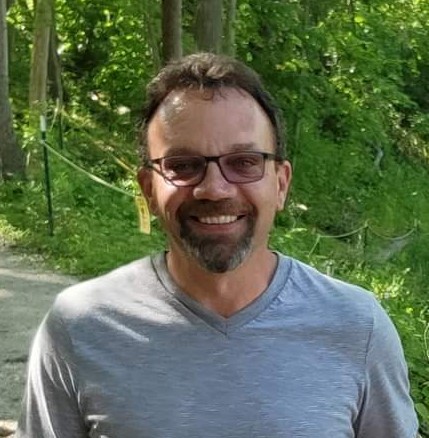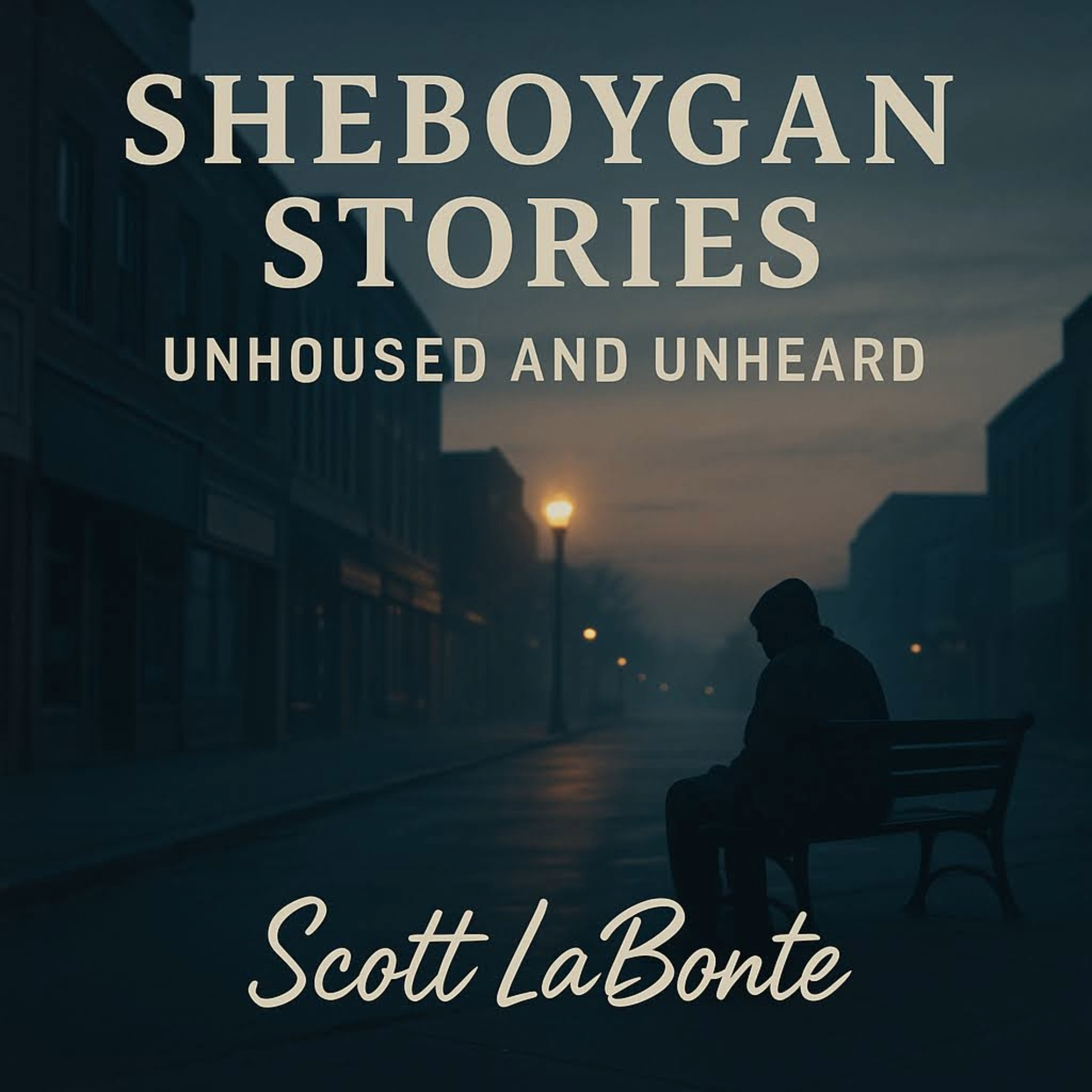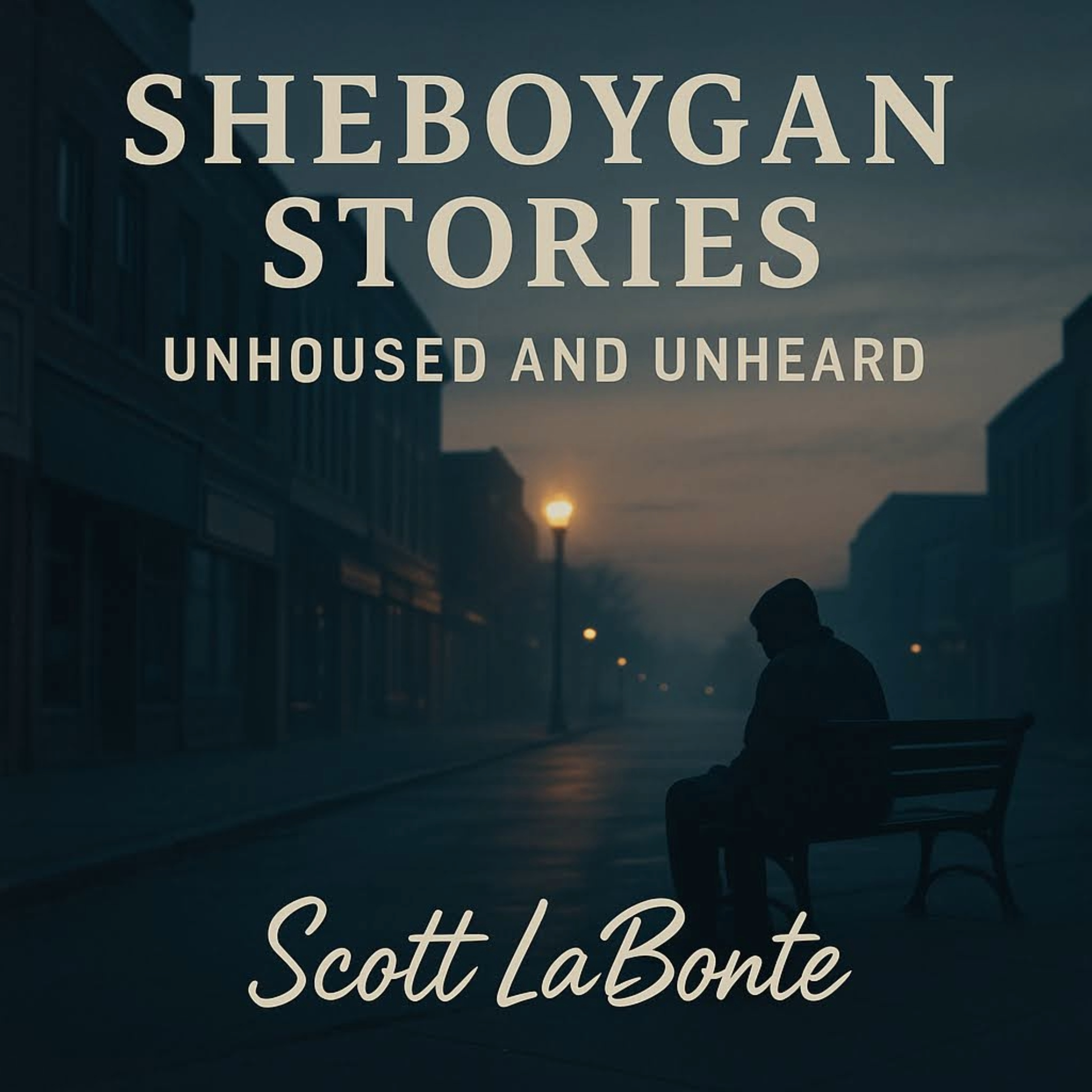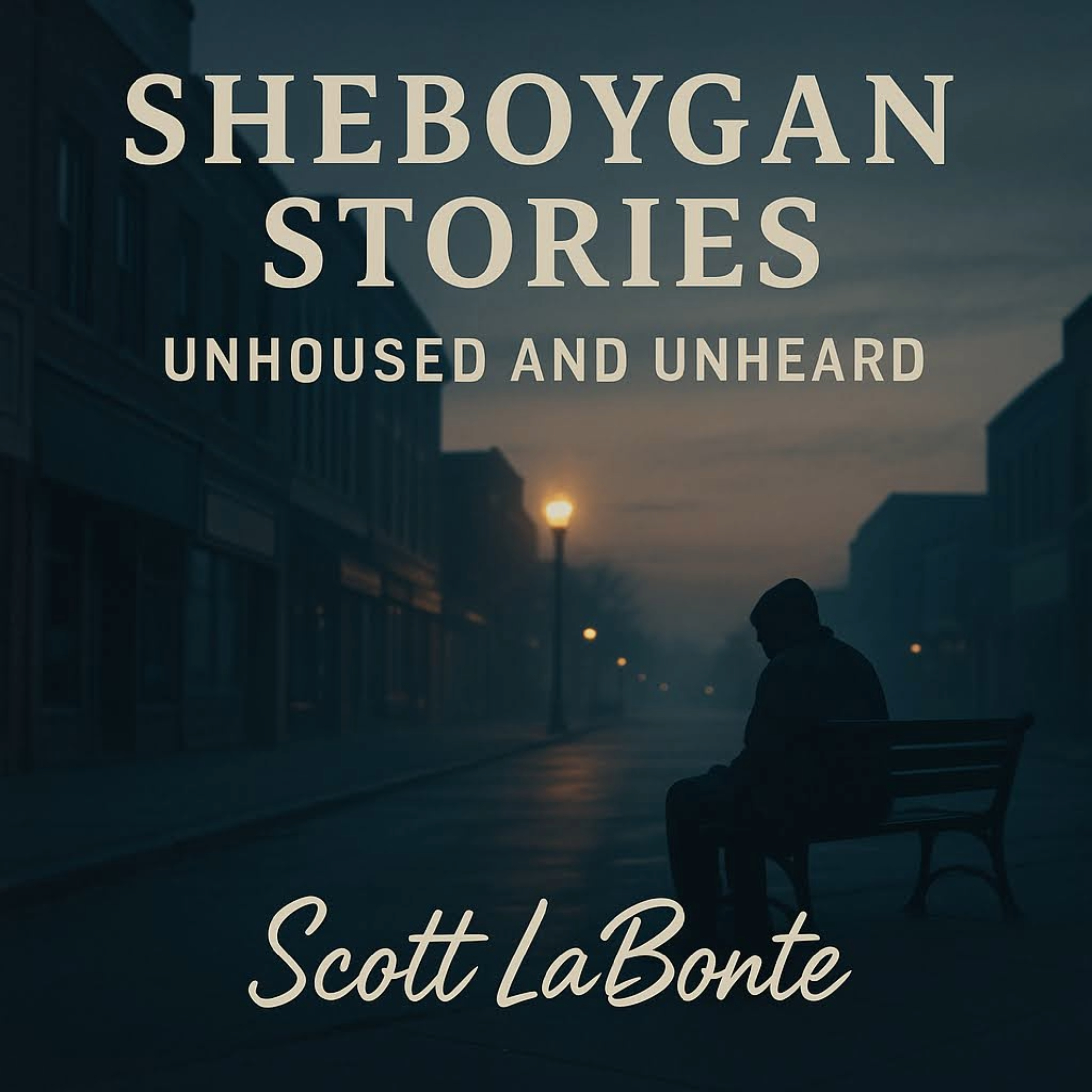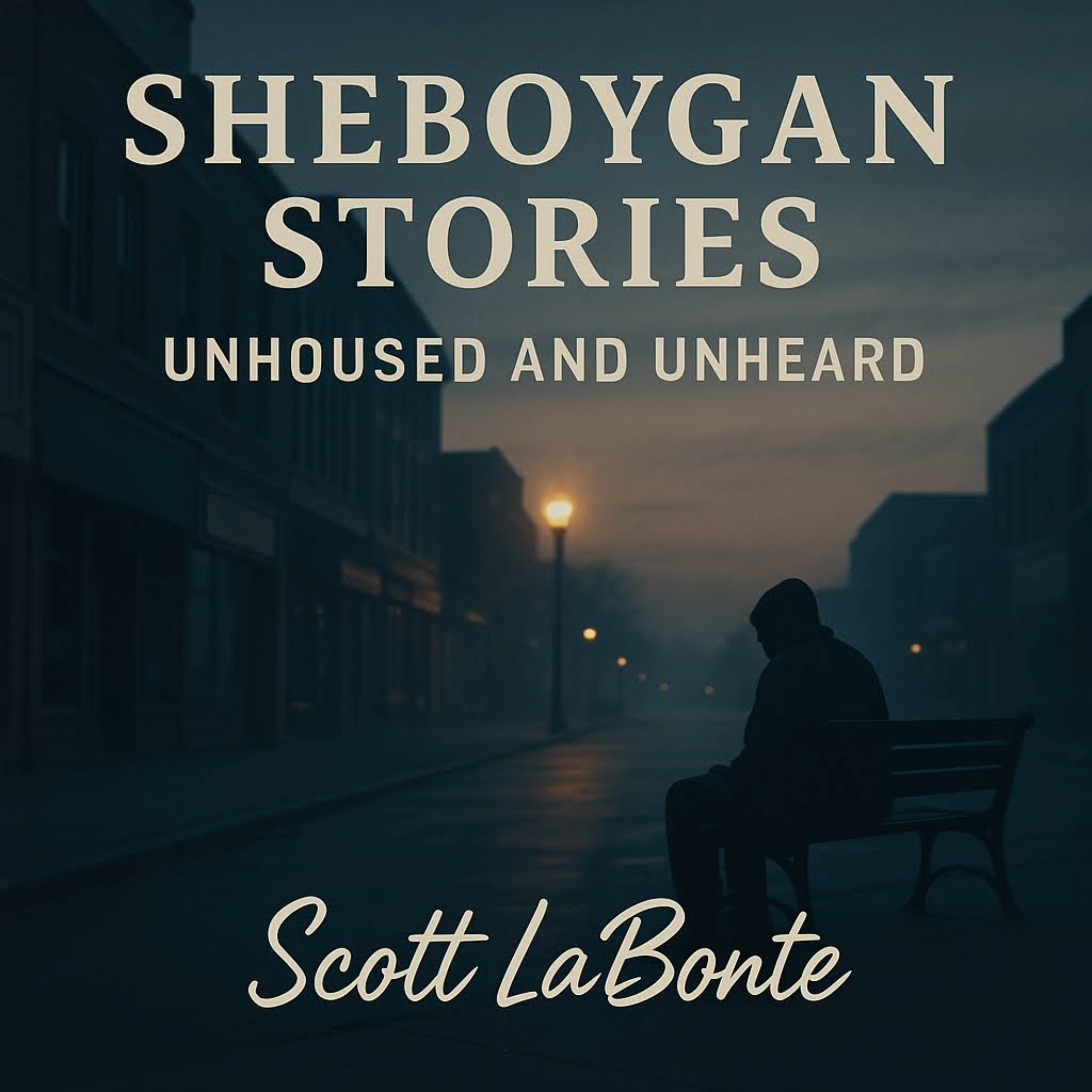Episode Transcript
[00:00:24] Speaker A: Welcome back to Sheboygan Stories and hows and unheard. I'm Scott and today's episode is something that we don't always get in life, but we all desperately need at times, second chances. I'm sitting down with Jenna, someone who's walked a tough road, but found the strength to fight for a new start. Her story is raw, real, and filled with hope. Jenna, thank you for joining me today and being willing to share your journey.
Alright, let's start where things were the hardest. Can you tell us a little bit about what life looked like before that second chance when you felt like you were at rock bottom?
[00:00:58] Speaker B: Yeah. So I labeled myself in the past as a chronic relapser where I would get clean for some time, then I'd relapse and get clean and relapse and it was a cycle for me. I would get clean, gain everything back and then relapse and I would lose everything again. And I went through that quite a few times.
That was probably this last time was probably.
That was my rock bottom because I realized that I couldn't keep living this way anymore and I had to do something different.
[00:01:34] Speaker A: Awesome. That's powerful. It really shows how quickly life can unravel and how overwhelming it can feel without the right support in place.
[00:01:44] Speaker B: Yeah, of course.
[00:01:46] Speaker A: So was there a moment or maybe a series of moments when you realize that things could change, that a second chance was even possible?
[00:01:54] Speaker B: Yes. So I guess this last time when I got clean, I have 15 months right now.
Last time I got clean, I.
I definitely hit my rock bottom, which I'll explain more in upcoming questions. But what, what helped me was I. For about two, three weeks prior to coming back to recovery, I tried and tried to get into core and they kept telling me, well, we have to run it past these people. We have to, you know, we have to. Because I went so many times, they had to make, they didn't want to keep me, keep abusing the resource, you know.
So I guess that my eyes opened when they told me, yeah, come in and they were going to give me another chance like I was. I didn't think it was going to happen, but I knew I needed something and that's what led me to where I am today, was the last chance they gave me to go there. I made the most of it.
[00:02:53] Speaker A: That's got to be extremely frustrating. I would think you're reaching out for the help, you know, that you need somebody's help and every time you do, you get turned away.
[00:03:05] Speaker B: But I also understand too where they're coming from. They've given me so many chances, you know, and if it wasn't for them giving me one more last chance, I probably wouldn't be where I am today.
[00:03:15] Speaker A: That is awesome. Everything happens for a reason and at the right time.
[00:03:18] Speaker B: Yeah.
[00:03:19] Speaker A: It's amazing how that one step, one opportunity can open the door to everything else.
A second chance doesn't always mean that the road is easy. What were some of the challenges you faced once you started trying to rebuild?
[00:03:35] Speaker B: Yeah. So like, so I'll share a little bit about how my journey started so well this time around. So I went to treatment at one place and then so like you said, challenges come up. Right.
You get a second chance, but there's things that come up on the way. So I went to a 30 day program in Manitowoc and from there I graduated. And they decided during my stay there that I would benefit from a 90 day transitional program, which was like a more laid back.
More like. It's just more laid back treatment, but it's a 90 day program.
So I got transferred to that 90 day program. The day after I got there, they decided they were gonna shut down. So I was only there for two weeks compared to 90 days. So I had to sit there and scramble and figure out what am I gonna do, where am I gonna go? Because I thought I had 90 days to figure this out. Now I have a week.
[00:04:30] Speaker A: You know, that's quite the wrench to be thrown in.
[00:04:34] Speaker B: Yeah. So. But I made it. I made it through. I, we, me and my team at the treatment center figured out a plan.
So I was put in a sober living in Madison, which I thought was going to be just great. I had fresh start, big city, great meetings, and it was not what I expected at all. Not saying anything bad about community, but it's not what I was hoping for.
I was in a position where people were still using it, the sober living. And I had to get out of there.
[00:05:03] Speaker A: Holy Jesus.
[00:05:04] Speaker B: So I came back to Manitowoc and that's when things started. I was doing the right next thing and things started falling into place. You know, I stayed with a friend here, man, a sober friend here, Manitowoc, for about a month and then I got into sober living and that's where it all went. That's how. That's how it went. Like things just started falling into place. It doesn't always go the way you want, but it will work out.
[00:05:31] Speaker A: Right? Wow. You know, and I think that's something that people don't always see, that the fight doesn't stop once you're on the right path. It's daily work, you know, it's a.
[00:05:40] Speaker B: Constant struggle just being sober. Eventually it becomes easier to handle these problems. Not at the beginning, may seem like a lot and too much to handle, but when you do it, like I, like I said, I have 15 months. So when I come up to these problems, I know better ways to handle them now, and I don't. My first thought isn't anymore. Isn't, oh, I should go get high because I can't handle this. No. I have things in play and coping skills that I use that makes it easier to handle problems that do come up. Because I'm 15 months clean and I still have problems coming up, you know, but it's the way I handle them now.
[00:06:16] Speaker A: Right. I have to say, huge. You rock. 15 months. That is awesome.
[00:06:22] Speaker B: Thank you so much.
[00:06:25] Speaker A: Okay, so let's fast forward to today. What does life look like now that might have felt impossible?
[00:06:33] Speaker B: Yeah. So like I said, things still happen. You know, there's hiccups in the road. But today I have my license, I have a job, I have a cute little puppy, my baby.
I'm in a happy relationship. I have my own apartment.
I'm actually been in this apartment the longest, almost for a year. The longest I've ever been in one place.
And I'm still 15 months into it, going to two to three meetings a week, if not more.
I'm doing what I need to do, you know, And I never thought I'd be where I am.
I say it almost every day. I can't believe I'm where I am. Like I never. Sixteen months ago, I would never thought of this.
[00:07:20] Speaker A: Right? That is like, unbelievable.
[00:07:22] Speaker B: Yeah.
[00:07:26] Speaker A: Let'S see.
Okay, so I'm gonna kind of backtrack a little bit.
Tell me about the road to recovery. What did it actually take?
[00:07:41] Speaker B: So, like, what was. What was the rock bottom? Is that what you're asking?
[00:07:46] Speaker A: Yeah.
[00:07:48] Speaker B: Yeah. So like I said, I was a chronic relapser. I was. I would get clean, then relapse for some time and get clean. And like, finally I got to the point. Part of it was I was just sick of doing the same thing over and over. Letting myself down, letting others down, you know, and a friend I was using with, we were both.
I. I described it as near death. Like we were not in a good spot.
And I just, I. I woke up. Well, I was up already because I was, you know, using. But one morning, the morning I went to treatment, I.
It just something. Something switched in My head, you know, like, I don't know. I just knew I couldn't live this way no more. I just couldn't. Like me or my friend were gonna end up dead. This. It just. I just couldn't live that life no more. It just wasn't worth it. I knew I had more potential than what I was offering, and I just knew I couldn't do it no more. And when I went through treatment, I feel like God was. That's who my higher power is. I feel like he put some blocks in the road to make. To help me get where I need to be. Because my first week, this friend that I would normally call to come pick me up, I wanted to. I wanted to leave. Well, her phone just happened to be off that week.
So I tried calling and for quite. For like a few days. And finally I'm like, you know what? This is a sign. This is a sign.
[00:09:24] Speaker A: I was just gonna say, right, yeah.
[00:09:27] Speaker B: This is where I need to be.
[00:09:28] Speaker A: That's the universe telling you it's time to change.
[00:09:32] Speaker B: Yeah. So I. And now, like today, I look at. I take signs, you know, I, I take. I see things happening and everything happens for a reason, you know, like 100 things don't just happen, you know, So I, I very. I'm very intuitive on that now. Like, things happen for a reason.
[00:09:51] Speaker A: Right.
Wow. That. That, that's absolutely incredible. That is proof that change is possible.
[00:09:58] Speaker B: Oh, yeah.
[00:10:01] Speaker A: For someone listening who's struggling, who feels like there's no way forward, what would you want them to hear from you?
[00:10:10] Speaker B: So I say it a lot to people that I see struggling, and it's kind of hard to keep repeating it because I feel like these people aren't open, you know, not everybody's ready for it. And that's something I struggle with, seeing people who aren't ready, you know, but there is hope, like, if you give it a chance. Like, for me, I had to just keep. I just had to keep doing the right next thing in my early recovery. Like, and there is hope. Like, there is light at the end of the tunnel. If you keep doing the right next thing, things will fall into place. It won't be easy, it won't be perfect, but it'll work out every. Like I said, everything happens for a reason. Things will work out if you just keep doing the right next thing.
[00:10:54] Speaker A: You know, it's kind of. We tell people that a lot, you know, especially like in. With the pay it forward stuff, with everything.
Instead of worrying about the big picture, you know, you look at everything and it just seems so overwhelming because you're thinking, oh, my God, it's out there. There's this huge.
Don't look at that big picture. Look at what's directly in front of you at that moment.
[00:11:17] Speaker B: Right. And along with doing the right next thing, like, for me, I said, my higher power is God. I always tell myself it's God's will, not mine. I need to do it. My higher power.
My higher powers will and not my will, because my will always gets me back in the same spot I was, you know.
[00:11:33] Speaker A: Right.
[00:11:33] Speaker B: Doing what I want to do and what I think is right always gets me back to square one.
[00:11:38] Speaker A: Right. And it puts you back into that cycle that really, you know, as time has shown, is really tough to get out of.
[00:11:45] Speaker B: Yeah.
Wow. Yep. Definitely.
Wow.
[00:11:50] Speaker A: Is. Is.
Is there anything else you'd like to add on this?
Anything else you'd like to tell us?
[00:11:56] Speaker B: I'm just grateful for all the support and resources in both Sheboygan and Manitowoc County. Like, for all the resources and support and the people who I feel should have given up on me but haven't, such as you guys and Lighthouse. Like, I'm just grateful for these people to believe in me when I couldn't believe in myself, you know?
[00:12:17] Speaker A: Right. And. And if I'm not mistaken, if I'm not mistaken, you were out on the streets, too, for a while, weren't you?
[00:12:23] Speaker B: Oh, yeah, a couple.
So, yeah, I was back last. A couple summers ago.
I went to treatment, went to sober living. Like, again, I went with my will, not God's. And so I ended up leaving the sober living and decided I'd be better at the Sheboygan, at the Salvation army. And, well, that I was doing. I did good, got my own apartment, but I just. I wasn't ready. As soon as I got my own apartment is when it got bad again. My addiction got bad. And.
Yeah. So. And then. And then that was probably my biggest stunt in Sheboygan was what, the three months I was at the Salvation Army.
[00:13:07] Speaker A: Right.
[00:13:07] Speaker B: But I was hanging around with the wrong people. I was going to the wrong places, and it just. I wasn't ready, you know? And I kind of knew that inside me.
[00:13:15] Speaker A: Right. And it's super easy to get caught up in that, especially when you're in a situation.
[00:13:19] Speaker B: Especially.
Yeah, especially when you're in a situation where you have to be gone all day and you want to hang out with people, but you don't. You want to go hang out somewhere, but you don't want to hang out Alone. So you go to the park where people are hanging out, but they're drinking or they're using, and it's just. It's hard. It's a hard situation. You feel all alone. All you want to be is around people, but all these people are using and drinking, you know?
[00:13:42] Speaker A: Right.
And I remember I did an interview with Robert a couple months back when I did the active addiction one, and he had mentioned that not even by any ill intent, but he said, with the people you hang out with, when you're stuck in that circle, they give you stuff. They're like, here.
I guess you're depressed. You're not. You're not who. You're supposed to take this, you know?
[00:14:14] Speaker B: Yeah. And I, as somebody who is an. Obviously was an active addiction. I found myself in that situation too, where I was maybe giving stuff to people I shouldn't have, you know, which I shouldn't be giving it to anybody. But I was like, they say misery likes company. Not saying that. Like, I wanted them to be miserable, but I wanted that to fill that void. And the only way I could do that with the. Was how small. Get high with this person, you know? And, like, I don't. I can't explain why, but I'm guilty of that myself. And, like, I don't know.
So I try. I try to be compassionate when I see things like that, like. But I also have to protect my own sobriety too, you know, So I had to make sure people aren't doing that with me, you know.
[00:15:04] Speaker A: Oh, absolutely. Not putting yourself back into that situation that may, you know, potentially lead back into that, but that helps, too. You had mentioned before that you have, you know, different coping strategies now and different ways of handling those, so I would imagine that helps too.
[00:15:19] Speaker B: Oh, yeah, right. Wow.
[00:15:23] Speaker A: Well, that is awesome. Huge, you know, again, huge kudos to you for your 15 months. That is truly amazing.
You know, I know all too many people that are still struggling and haven't. I don't know if they haven't hit that rock bottom yet or haven't really decided.
[00:15:40] Speaker B: Oh, and I want to say something quick.
[00:15:41] Speaker A: Oh, absolutely.
[00:15:42] Speaker B: Everybody is rock bottom is different. I just want people to know that, like, I've never gone to jail for it. I've never picked up a charge. Everybody's rock bottom is different. For me, it was my. Mainly my emotional rock bottom, you know, it was. The emotional aspect was where I found recovery. You know, everybody is rock bottom. Looks different. Like, I have never overdosed with those people. Overdose and then continue to get high. The Next day, an hour later, you know.
[00:16:10] Speaker A: Right.
You know, I. Thankfully, I guess I've never been in that stage of, you know, but I have to. That kind of blows my mind. You know, you had mentioned somebody will OD and then they're back using the next day or an hour later or something. You know, I've talked to people that, you know, they've had people use Narcan on them to bring them back, like a couple different doses of Narcan, and they were right back at it a few hours later. And. And, yeah, I guess, I don't know, I.
That's got to be a tough spot to be in.
[00:16:43] Speaker B: Oh, yeah, definitely. I just. I'm just grateful that my rock bottom wasn't as deep as some, you know, like some people. You know what I mean? Like, not saying I'm any better or anything, but I'm just grateful that I was able to find recovery before I got to that. That deep, you know, Right.
[00:17:01] Speaker A: Before he ended up in jail or worse.
[00:17:04] Speaker B: Right. Or in prison or overdose, you know.
[00:17:07] Speaker A: Right.
[00:17:09] Speaker B: Wow.
[00:17:12] Speaker A: Alrighty. Well, if you didn't have anything else, I guess we can, you know, I can wrap this up.
[00:17:17] Speaker B: Yeah. Thank you so much for having me.
[00:17:21] Speaker A: So, Jenna, thank you for sitting down with me and sharing your heart stories like you like yours remind us that the road may be long, but it's never too late for a change.
[00:17:31] Speaker B: Definitely.
[00:17:31] Speaker A: And you had talked about rock bottom, but not enough about, you know, we in general, I guess we talk about rock bottom, you know, everybody. And you had mentioned everybody's rock bottom is different, but nobody talks enough about the courage it takes to rise from that. And you've shown that courage.
And hopefully with this podcast with people listening, maybe that'll give somebody the courage to try it too.
[00:17:58] Speaker B: Right.
[00:17:58] Speaker A: You know, and even that's what I hope for. Right. And like you had said, even if it doesn't work now, try it again.
[00:18:04] Speaker B: Oh, yeah.
It took me about four times or, well, four to six times, depending which ones you count and not count.
Right. Some of them are really short stents, but.
[00:18:16] Speaker A: Right. Well, it's still an effort, you know, and it's hopefully that this. This may give somebody else some hope.
All righty.
[00:18:24] Speaker B: Yeah. Thank you so much.
[00:18:25] Speaker A: Absolutely.
So you have yourself a wonderful day and thank you again for sitting down and talking with me.
[00:18:34] Speaker B: Of course.
[00:18:35] Speaker A: And I will be in touch. This episode will be out a little bit later on today.
[00:18:39] Speaker B: Okay. All right, sounds good. Thank you.
[00:18:42] Speaker A: All right, I'll talk to you later.
[00:18:43] Speaker B: Yep. Bye.
[00:18:49] Speaker A: Alright, that was Jenna on the phone.
Second chances aren't always about wiping the slate clean. They're about holding space for growth, about choosing to believe in someone again or for the first time.
And when we offer that grace, we don't just help somebody rebuild their life, we help rebuild our community too.
This has Ben Chebogin's stories on how's the unheard of? I'm Scott labonte. If this story moved, you share it, talk about it.
You can find these podcasts on any major streaming platform. Whichever one happens to be is your favorite.
Also on Sheboygan area pay it forward.org alright everybody, have yourself a great day. Most of all, keep your heart open and always pay it forward. It.
